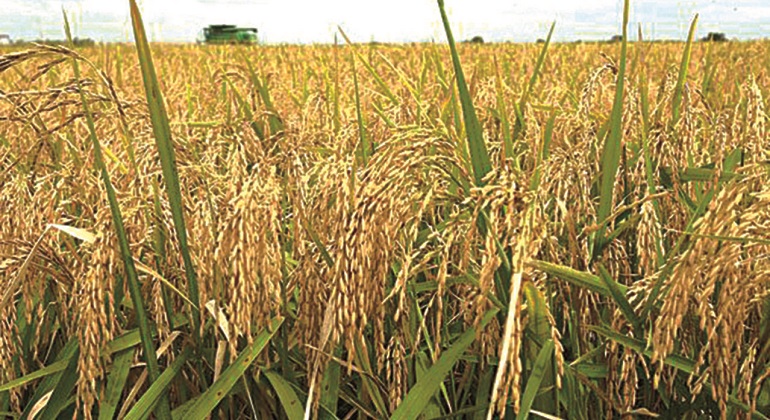Ogun State has emerged as a key player in the rice value chain, reflecting the state’s commitment to agricultural development. The rice value chain in Ogun has evolved into a dynamic system, contributing significantly to the state’s economy and playing a pivotal role in Nigeria’s quest for food security.
Rice Cultivation
At the heart of the rice value chain in Ogun is cultivation. The state’s fertile soils, favorable climatic conditions, and proximity to water bodies make it an ideal region for rice farming. Farmers across various local government areas engage in both rain-fed and irrigated rice cultivation, ensuring a steady supply of this staple crop.
Challenges in Rice Cultivation
Despite its importance, rice cultivation faces challenges such as inadequate irrigation infrastructure, fluctuating market prices, and the impact of climate change. Farmers in Ogun have shown resilience, adopting water management techniques, embracing improved rice varieties, and exploring sustainable farming practices.
Processing and Milling
Ogun State has witnessed a surge in investments in rice processing mills. Entrepreneurs and agribusinesses have established modern rice mills equipped with state-of-the-art technology for parboiling, milling, and packaging. This not only reduces post-harvest losses but also creates employment opportunities and enhances the overall quality of locally produced rice.
Market Access and Distribution
Access to markets is vital for farmers and processors alike. Ogun’s strategic location and well-connected transportation networks facilitate the distribution of locally produced rice to local markets and neighboring states. Strengthening market linkages and collaborating with distributors can further expand the reach of Ogun State’s rice products.
Government Interventions
Recognizing the importance of the rice value chain, the Ogun State government has implemented initiatives to support farmers and processors. This includes providing access to improved rice seeds, offering financial incentives, and investing in irrigation infrastructure to enhance rice cultivation.
Capacity Building and Training
To ensure the sustainability of the rice value chain, capacity building and training programs have been instrumental. Farmers and agribusinesses in Ogun receive training on modern farming techniques, pest and disease management, and post-harvest handling, empowering them to enhance productivity and product quality.
Quality Control and Certification
Maintaining high-quality standards is paramount for rice products. Ogun State places a strong emphasis on adherence to quality control measures and obtaining necessary certifications, ensuring that its rice products meet both local and international standards.
Technology Adoption
The adoption of modern technologies has played a significant role in optimizing rice production and processing in Ogun. Farmers and processors are increasingly utilizing mechanized farming equipment, digital tools for precision agriculture, and energy-efficient processing technologies.
The Way Forward
To unlock the full potential of the rice value chain in Ogun, a comprehensive approach is essential. This includes continued investment in research and technology, infrastructure development, and supportive policies. Collaboration between the government, private sector, and local communities is pivotal for overcoming challenges and ensuring sustained growth in the rice industry.
In conclusion, Ogun State’s rice value chain stands as a beacon of agricultural success. By addressing challenges, fostering innovation, and promoting value addition, Ogun is well-positioned to continue making significant contributions to Nigeria’s agricultural and economic prosperity through its thriving rice industry.

